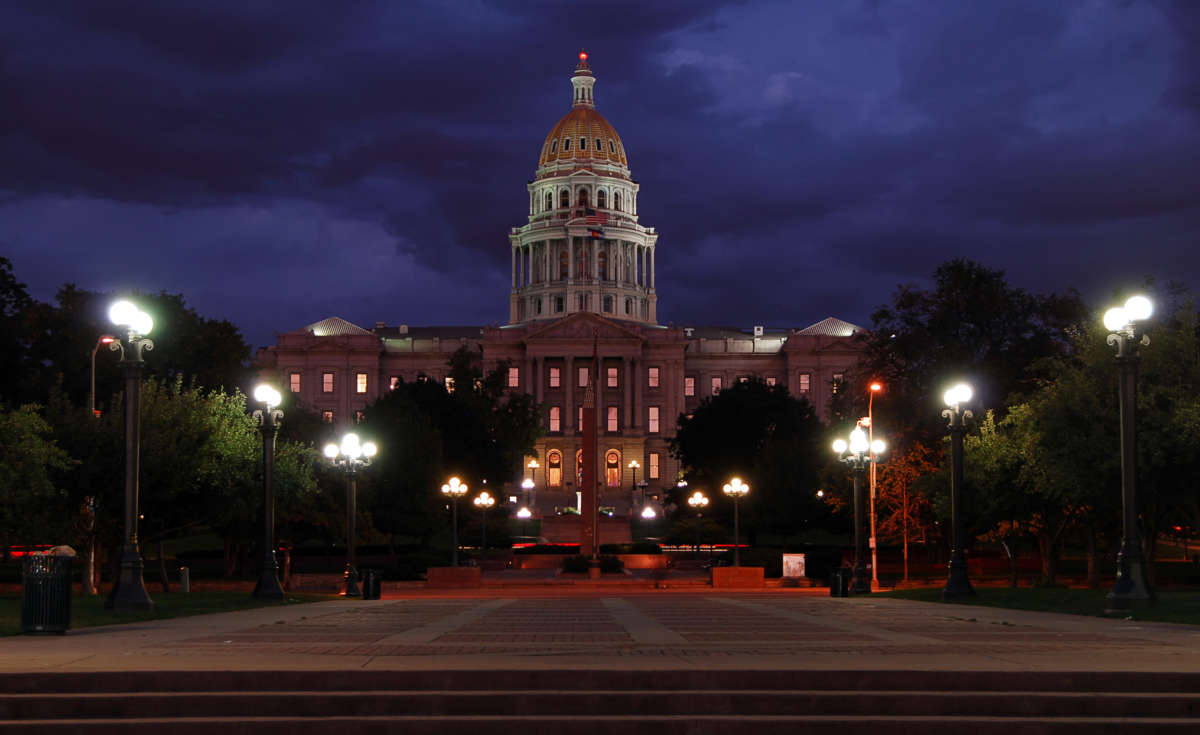On Saturday night, a bill enshrining abortion protections in Colorado was passed in the state’s Democratic-run House of Representatives after Republicans tried to block the legislation with a 23-hour filibuster.
It is believed that the filibuster was the longest one in Colorado in nearly 25 years, The Denver Post reported. The procedural move was held in spite of the fact that it was a foregone conclusion that the bill would pass.
The bill now advances to the state Senate, where it is also expected to pass. Gov. Jared Polis, a Democrat, has indicated his support for the measure and will likely sign the bill into law when it reaches his desk.
Democrats could have blocked the filibuster altogether, but didn’t do so due to bipartisan tradition in the chamber against such actions. Party leaders expressed a need to pass the law in order to protect people’s reproductive rights, even if it meant sitting through Republicans’ complaints about the bill for nearly an entire day.
“We will be here as long as we have to be here to continue to fight for the right for women to have a right to choose in the state of Colorado. We’re here to protect that right and we’re going to keep going as long as they make us go,” House Majority Leader Daneya Esgar (D) said.
The bill, sponsored by Rep. Meg Froelich (D), declares that access to abortion and contraception are fundamental rights for state residents, and restricts municipal governments from imposing their own bans on abortion at the local level.
Froelich previously indicated a need for the bill to be passed in December, following arguments in the federal Supreme Court in which conservative justices indicated a willingness to upend abortion protections that were recognized in the landmark Roe v. Wade decision from 1973.
“We have to have in statute protections for access to the full range of reproductive care, including abortion,” Froelich said at the time.
The state of Colorado already has some of the strongest abortion protections in the country. State law currently allows abortion at all stages of pregnancy; people seeking abortions can access outpatient procedures at up to 26 weeks of gestation, and can get medically indicated abortions at up to 34 weeks. Those seeking an abortion are not subject to waiting periods, and are protected by another state law that restricts protesters from harassing individuals who are entering clinics.
But accessing an abortion can still be challenging for many Coloradoans, as 87 percent of counties in the state do not have a clinic.
Colorado voters are decidedly in favor of reproductive rights, as they have elected pro-abortion leaders to office and rejected efforts to limit access to abortion.
Last year, Polis signed into law a bill that makes Medicaid funds available for abortion services. In November of 2020, voters sided against a ballot measure that would have banned abortion services after 22 weeks of pregnancy, with nearly 6 in 10 residents indicating that they were opposed to such a move.
Angry, shocked, overwhelmed? Take action: Support independent media.
We’ve borne witness to a chaotic first few months in Trump’s presidency.
Over the last months, each executive order has delivered shock and bewilderment — a core part of a strategy to make the right-wing turn feel inevitable and overwhelming. But, as organizer Sandra Avalos implored us to remember in Truthout last November, “Together, we are more powerful than Trump.”
Indeed, the Trump administration is pushing through executive orders, but — as we’ve reported at Truthout — many are in legal limbo and face court challenges from unions and civil rights groups. Efforts to quash anti-racist teaching and DEI programs are stalled by education faculty, staff, and students refusing to comply. And communities across the country are coming together to raise the alarm on ICE raids, inform neighbors of their civil rights, and protect each other in moving shows of solidarity.
It will be a long fight ahead. And as nonprofit movement media, Truthout plans to be there documenting and uplifting resistance.
As we undertake this life-sustaining work, we appeal for your support. Please, if you find value in what we do, join our community of sustainers by making a monthly or one-time gift.
